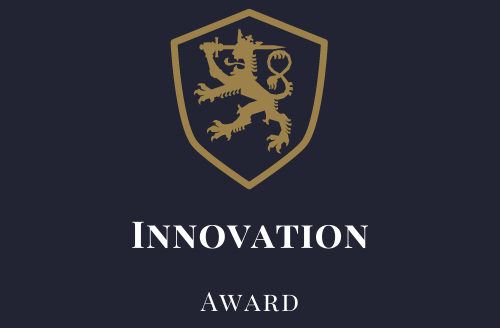Canada is embracing a wave of educational innovations, including hybrid learning models that blend online and in-person instruction for flexibility. Artificial intelligence is being utilized to personalize learning and improve administrative efficiency. Immersive technologies, such as virtual and augmented reality, are enhancing experiential learning opportunities. STEAM education is gaining prominence, equipping students with critical future skills. Micro-credentials and lifelong learning initiatives are addressing job market demands with flexible, accessible courses. Additionally, Canada’s focus on mindfulness and social-emotional learning is promoting mental health and well-being among students.
Canada’s education landscape is undergoing a transformative shift, embracing cutting-edge technologies and innovative approaches to enhance the learning experience. As we look ahead to 2024 and beyond, several key trends are shaping the future of education in Canada.
Hybrid Learning Takes Center Stage
The evolution of hybrid learning, catalyzed by the COVID-19 pandemic, is redefining educational paradigms in Canada. This model seamlessly blends online and in-person instruction, offering a flexible approach that benefits both students and educators. As educational institutions adapt, hybrid learning is poised to become a permanent fixture in the Canadian education system.
The key advantage of hybrid learning lies in its flexibility, allowing students to learn at their own pace. This personalization of the learning experience is further enhanced as educators can tailor their teaching methods to meet individual student needs. Online components provide opportunities for self-directed learning and access to a wealth of digital resources, while in-person sessions facilitate hands-on activities and direct interaction with instructors.
Moreover, hybrid learning addresses various accessibility issues, enabling students from diverse geographical locations and backgrounds to access quality education. As technology continues to advance, tools such as virtual classrooms, interactive simulations, and digital collaboration platforms are expected to further enrich the hybrid learning experience.
Artificial Intelligence Revolutionizes Education
Artificial Intelligence (AI) is revolutionizing education in Canada by providing personalized learning experiences and optimizing administrative efficiency. AI-powered tools, such as personalized learning platforms and intelligent tutoring systems, are greatly enhancing the educational landscape. These technologies offer tailored support and real-time feedback, allowing students to progress at their own pace and according to their unique learning needs. By analyzing vast amounts of data, AI algorithms can identify individual strengths and weaknesses, thereby customizing content to maximize each student’s potential.
Moreover, AI is streamlining administrative tasks, which is a substantial boon for educators. From automating grading processes to managing student records and attendance, AI reduces the time teachers spend on administrative duties. This shift allows educators to dedicate more time and energy to instructional activities and personalized student interactions, thereby improving overall teaching effectiveness.
In addition to educational benefits, AI also supports data-driven decision-making within institutions. By leveraging predictive analytics, schools can identify at-risk students and implement early intervention strategies to improve retention and success rates.
As Canada continues to invest in AI technologies, the education sector is poised for a significant transformation, fostering a more efficient, effective, and personalized learning environment.
Immersive Technologies Enhance Learning Experiences
Building on the advancements driven by AI, immersive technologies such as Virtual Reality (VR) and Augmented Reality (AR) are further transforming the educational landscape in Canada by providing dynamic and interactive learning experiences. These technologies offer unique opportunities for students to engage with complex concepts and explore new domains of understanding in ways that traditional methods cannot match.
VR and AR facilitate experiential learning by creating immersive environments that enable students to:
- Explore Historical Sites: Students can virtually visit and interact with historical sites and artifacts, providing a deeper understanding of historical events and cultural contexts.
- Conduct Virtual Experiments: In subjects like chemistry and physics, virtual labs allow students to perform experiments without the risk of hazardous materials, fostering a safe and engaging learning environment.
- Visualize Complex Concepts: AR can overlay digital information onto the physical world, helping students visualize and comprehend abstract concepts like molecular structures or astronomical phenomena.
- Participate in Interactive Simulations: VR can simulate real-world scenarios, such as medical procedures or engineering challenges, providing hands-on experience that prepares students for future careers.
As VR and AR technologies become more accessible and affordable, their integration into Canadian classrooms is expected to grow, setting the stage for a new era of immersive and impactful education.
STEAM Education Gains Momentum
Embracing interdisciplinary learning, Canada’s education system is increasingly prioritizing STEAM education to equip students with the skills necessary for future challenges. Recognizing the critical importance of integrating the arts into traditional Science, Technology, Engineering, and Mathematics (STEM) subjects, educators are incorporating STEAM programs into their curricula. This approach is designed to foster creativity, critical thinking, and problem-solving skills, which are essential for addressing the complexities of the 21st century.
Canadian schools are actively adopting STEAM initiatives through various methods, including project-based learning, collaborative problem-solving workshops, and the use of advanced technologies. These programs aim to create an engaging and dynamic learning environment where students can develop a well-rounded skill set. By blending artistic creativity with scientific and technical knowledge, STEAM education encourages students to think outside the box and approach problems from multiple perspectives.
Moreover, partnerships between educational institutions and industries are enhancing the practical application of STEAM principles. Through collaborations with technology companies, art organizations, and engineering firms, students gain real-world experience and insights into potential career paths. This holistic approach not only prepares students for future academic and professional endeavors but also promotes innovation and adaptability in a rapidly evolving world.
Micro-credentials and Lifelong Learning
As Canada’s education system continues to innovate, the focus on micro-credentials and lifelong learning is emerging as a pivotal strategy to address the demands of a rapidly changing job market. These short, specialized courses enable learners to quickly acquire specific skills, thereby enhancing their employability and adaptability. Canadian educational institutions are increasingly embracing this trend, offering a diverse array of micro-credentials tailored to industry needs.
Micro-credentials offer several advantages that make them highly appealing in today’s fast-paced world:
- Flexibility: Learners can complete courses at their own pace, balancing education with work and personal commitments.
- Relevance: Courses are designed in collaboration with industry experts to ensure the skills taught are immediately applicable in the job market.
- Affordability: Compared to traditional degree programs, micro-credentials are often more cost-effective, making education accessible to a broader audience.
- Stackability: Many micro-credentials can be combined to form larger qualifications, providing a pathway to advanced education and career progression.
The rapidly evolving job market has highlighted the need for continuous upskilling and reskilling. Micro-credentials, which are short, focused courses that provide specific skills and competencies, are becoming increasingly popular among Canadian learners.
Emphasis on Mental Health and Well-being
Recognizing the critical importance of mental health, Canadian educational institutions are prioritizing holistic support systems to enhance the well-being and resilience of students. This shift underscores the growing awareness that mental health is foundational to academic success and overall development.
To address this, schools are implementing extensive mental health support programs that cover a wide range of needs.
Central to these efforts are counseling services that provide essential psychological support, allowing students to navigate personal and academic challenges more effectively. Additionally, the integration of mindfulness practices into the daily routine helps students manage stress, improve concentration, and develop emotional regulation skills.
Social-emotional learning (SEL) initiatives further complement these efforts by teaching students vital skills such as empathy, self-awareness, and responsible decision-making.
As Canada embraces these trends and innovations, the education system is becoming more dynamic, inclusive, and future-oriented. By harnessing the power of technology, promoting interdisciplinary learning, and prioritizing student well-being, Canadian educators are paving the way for a brighter future. As we move forward, it is essential to continue investing in research, collaboration, and innovation to ensure that Canada remains at the forefront of educational excellence.




